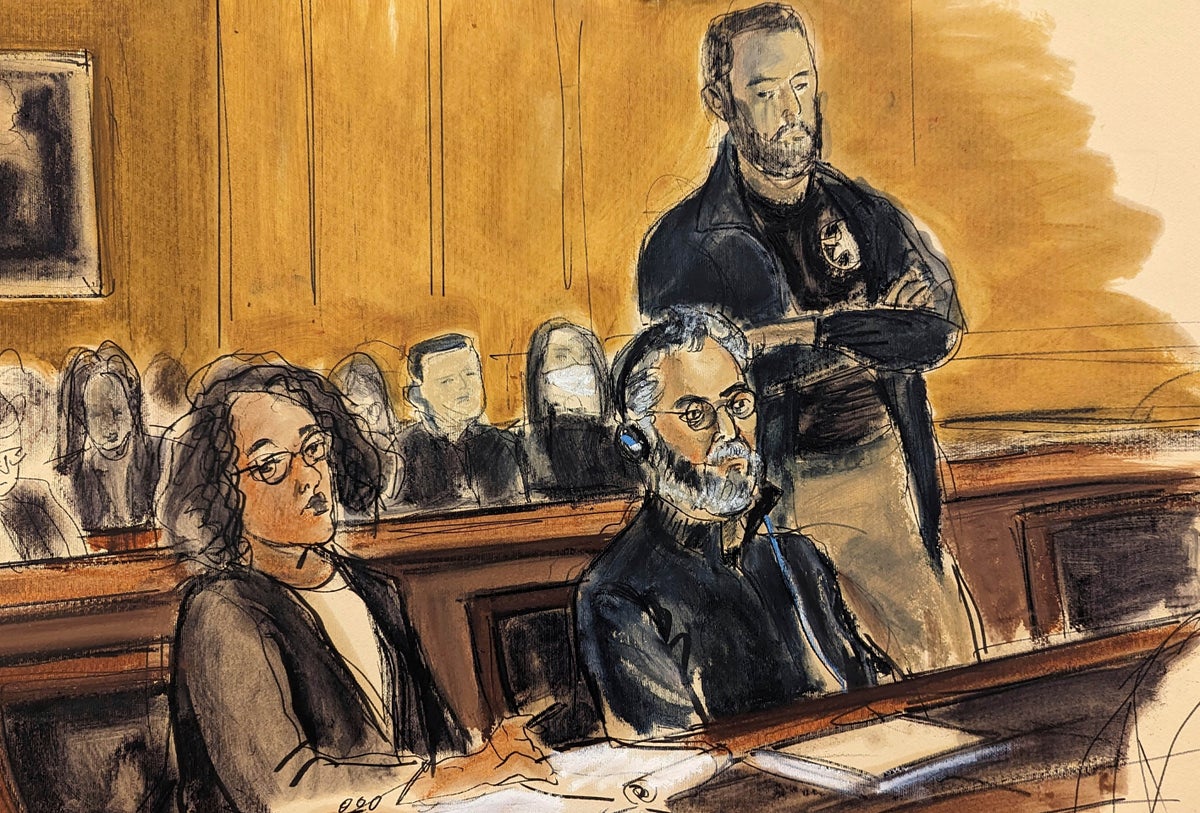
A judge should reject bail for a wealthy self-exiled Chinese businessman charged in a $1 billion fraud case because he’s already trying to obstruct justice from jail, and can flee or do harm if he is freed, no matter how stringent his bail conditions, prosecutors said Monday.
The government submitted a letter in advance of a bail hearing Tuesday for Guo Wengui, saying he has access to tens of millions of dollars to help him flee the United States despite claims that he is unemployed, in bankruptcy proceedings and nearly broke.
The letter argued he's a threat — and at risk to continue a pattern of frauds that has escalated despite intervention by the Securities and Exchange Commission, closing of his financial accounts, receipt of grand jury subpoenas by entities affiliated with him, contempt rulings by judges and the seizure of $630 million.
Guo, 54, listed in court papers under the name Ho Wan Kwok, was arrested March 15 on charges including securities, wire and bank fraud.
Last week, his lawyers proposed a $25 million bail package to include location monitoring, home detention and an armed guard. It was his first bail request.
The lawyers said Guo would not flee, in part because if he left the United States, Chinese authorities would make sure he faced “intolerable risks to his life." They said strict bail conditions could ensure he was no harm to others.
Guo, once believed to be among the richest people in China, left his homeland in 2014 as people close to him were swept up in an anti-corruption crackdown. China has accused Guo of rape, kidnapping and bribery. He maintains he is being smeared by the Chinese government as punishment for publicly outing corruption there.
Prosecutors said Guo's bail proposal was “woefully inadequate” because of his substantial foreign contacts, along with strong incentives and significant resources to flee. And they added that there were no bail conditions that could prevent what they called the “pervasive danger” his release would pose to the public.
Interviewed by court employees after his arrest, Guo said he'd been unemployed since 2016 and only had $10,000 in assets that were not liquid cash, prosecutors said. He denied owning property or vehicles.
He said his Greenwich, Connecticut estate, which he valued at $9 million, was owned by his wife; his Manhattan penthouse was owned by his son; and his monthly expenses of about $100,000 were paid by his family, prosecutors said.
The U.S. government maintained that Guo has threatened witnesses against him and orchestrated harassment of others.
Prosecutors rejected claims by the defense that Guo is unlikely to flee because he has not left the U.S. in five years, saying his 2017 asylum application precluded travel. They said that he has spent over four of those years using the U.S. “as the staging ground to run a billion-dollar fraud enterprise.”
As for his claims of near poverty, the government reported that federal agents found over $500,000 in U.S. currency, foreign currency and gold coins in one of his homes — and said that a fugitive in the case who is believed to be living in the United Arab Emirates has access to millions of dollars to help Guo and his family flee.
"The defendant uses dozens of different cellphones and cellphone scramblers; he has relied on an intricate and dense web of shell corporations, middle men, and subterfuge," prosecutors wrote.
They said his "ability to conceal his actions is not speculative. Federal and state court judges have found as much."







